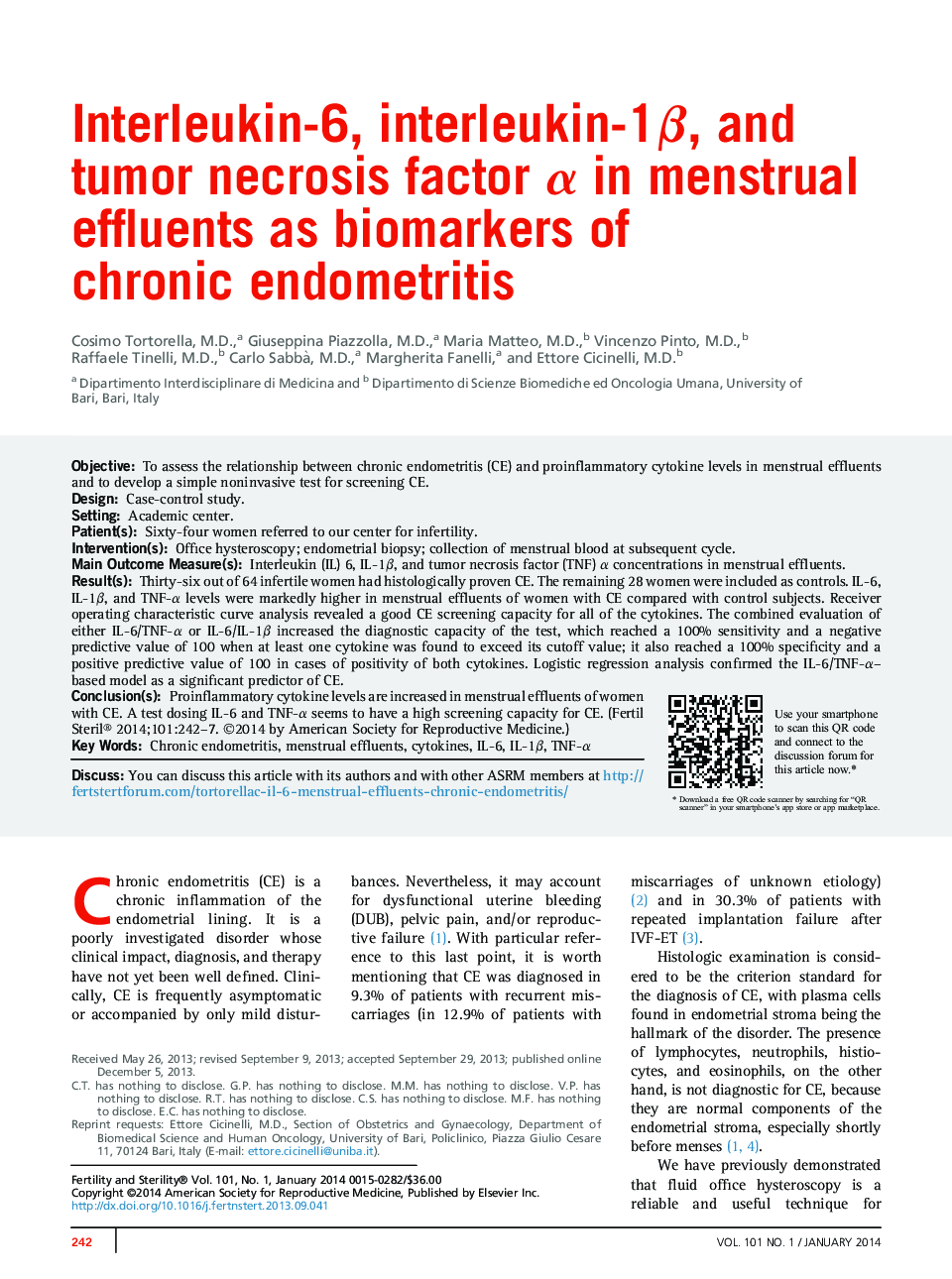| Article ID | Journal | Published Year | Pages | File Type |
|---|---|---|---|---|
| 3938432 | Fertility and Sterility | 2014 | 6 Pages |
ObjectiveTo assess the relationship between chronic endometritis (CE) and proinflammatory cytokine levels in menstrual effluents and to develop a simple noninvasive test for screening CE.DesignCase-control study.SettingAcademic center.Patient(s)Sixty-four women referred to our center for infertility.Intervention(s)Office hysteroscopy; endometrial biopsy; collection of menstrual blood at subsequent cycle.Main Outcome Measure(s)Interleukin (IL) 6, IL-1β, and tumor necrosis factor (TNF) α concentrations in menstrual effluents.Result(s)Thirty-six out of 64 infertile women had histologically proven CE. The remaining 28 women were included as controls. IL-6, IL-1β, and TNF-α levels were markedly higher in menstrual effluents of women with CE compared with control subjects. Receiver operating characteristic curve analysis revealed a good CE screening capacity for all of the cytokines. The combined evaluation of either IL-6/TNF-α or IL-6/IL-1β increased the diagnostic capacity of the test, which reached a 100% sensitivity and a negative predictive value of 100 when at least one cytokine was found to exceed its cutoff value; it also reached a 100% specificity and a positive predictive value of 100 in cases of positivity of both cytokines. Logistic regression analysis confirmed the IL-6/TNF-α–based model as a significant predictor of CE.Conclusion(s)Proinflammatory cytokine levels are increased in menstrual effluents of women with CE. A test dosing IL-6 and TNF-α seems to have a high screening capacity for CE.
